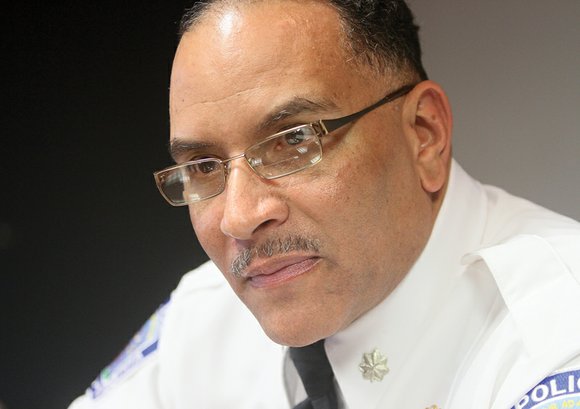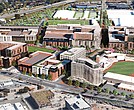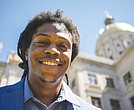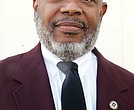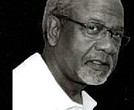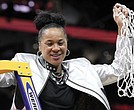Police Chief Alfred Durham responds: ‘We are the community and the community is us’
8/5/2016, 7:14 a.m.
As I meet with members of the community, our conversations often turn to the relationship between the police and the community in light of the recent high-profile, police-involved shootings that have occurred in other states.
It is an understandably emotional topic of conversation that arises from our mutual desire to ensure these types of incidents do not undermine the great strides we have made here in Richmond.
Rather than allow it to fuel the tension, distrust and animosity between the police and the community seen in other cities, we demonstrate civility and compassion even as we engage in passionate protest or intense disagreement.
I have been asked for my thoughts and comments on a number of issues related to how we can ensure a similar incident does not happen here in Richmond. While it is impossible to make such a guarantee, rest assured that we are working tirelessly with the community to help prevent that type of tragedy from occurring in Richmond.
I would like to take a moment to address some questions posed by the Richmond Free Press.
Commentary
Is tougher screening needed to weed out potential or current officers who may be prone to such violence?
In Richmond, we have established high standards for police officer candidates. We conduct an exhaustive process by which the candidates are reviewed and assessed, including comprehensive medical and psychological assessments. Investigators also comb through the backgrounds of all candidates to ensure that we are able to determine if she or he possesses the tools, demeanor and skills necessary to be a high quality police officer. We do not cut corners or compromise our high standards. It is a fair, but tough process that is designed to weed out any insufficient candidates.
With regard to current officers, continued training, supervisory review and an early intervention system are critical to identifying officers who may not be meeting the expectations of the department and community.
In the end, there is no assessment or screening tool that will be 100 percent accurate in predicting whether an officer will be prone to misconduct or behavioral issues, which is why we go to such great lengths to find the best, most qualified candidates and then provide them with the best training in the industry.
Is there a “watch list” of officers or potential candidates that is kept by the department and/or circulated with other police agencies? If not, should there be one?
I have not heard of such a list. Practically speaking, it would be difficult, if not impossible, to maintain such a list in an accurate and meaningful way. There would also likely be legal objections to keeping such a list.
That said, the perceived need for a “watch list” would not exist if all departments maintain high standards of hire and then conduct the necessary due diligence on all candidates. If departments exhaustively and objectively review candidates, they would be able to identify those individuals who have had prior issues, previously demonstrated they are unfit to be a police officer or possess other red flags or concerns in their background.
What are you, the chief of police, doing to publicly repudiate/renounce the actions of cops such as those on video from Louisiana and Minnesota, and to say that will not be tolerated in Richmond?
As I have stated previously, when it comes to any police-involved shooting, as the chief of the Richmond Police Department, it would not be appropriate for me to comment on or second-guess the specific actions of officers in another department. I would hope for the same consideration for my department.
As a member of the community, a father and someone who has experienced the pain of losing a loved one to the violent actions of another, I can say with full understanding that the loss of life is a profound tragedy. And as chief of police and a law enforcement professional for more than 29 years, I hold my officers to a high standard of professional and courteous conduct when interacting with any member of the public.
What specific training are officers receiving to deal with the increasing number of people in the community who suffer from mental illnesses, including Alzheimer’s disease, and who may become violent or display aberrant behavior?
We work tirelessly to train and equip our officers to handle everything from the routine to the most difficult and challenging scenarios. We have adapted our existing training and added new training to keep up with the requirements of contemporary policing and the expectations of the community.
We provide our officers with Crisis Intervention Training, training in appropriate use of force, fair and impartial policing and other courses designed to build police competencies and reduce the risk of having to use deadly force or having a deadly encounter.
But despite all of those efforts, we still understand that risk can never be completely removed.
What can we in the community do, and what can the police do, to ensure that interactions don’t get out of hand? Everyone is on edge when they are stopped by the police. All of the events around the country have heightened the fear of being stopped. What can be done to reverse that?
I don’t think there is a way to completely remove the tension from those types of interactions. During the normal course of fulfilling their duties, there are times when police will have to stop individuals, whether it is for a moving violation, canvassing for a suspect in a recent crime or merely to share information. Those moments can sometimes be tense and disconcerting for the people being stopped. No one wants to be stopped by police to be issued a traffic ticket or be cited for any other type of violation.
The key to ensuring those routine interactions don’t get out of hand is communication and accountability. If you are stopped by police, please follow instructions, communicate with the officer and feel free to ask questions.
I expect my officers to be courteous and professional during all interactions. And when all parties — both police and the public — are respectful of one another, the interaction will always go smoothly.
In the event that you feel the officer has not conducted himself or herself in a professional manner, you may let me know by filing a complaint with the department. The good news is that nearly all of the hundreds of thousands of interactions each year between police and community members in Richmond go smoothly, routinely and without incident.
What is the best way our community can heal from this and inoculate our community from future ills?
We recognize that the department’s relationship with the community is more important than ever, so our goal is to continue to build safe and strong communities throughout Richmond as a collaborative endeavor from within the community.
It is more than just a partnership, which is often seen as merely a transactional relationship. Instead, it is a shared venture and effort in which we are all vested.
The members of the police department are thoroughly immersed in the community. Our officers know the people on their beats, members at all ranks take part in regular community walks and both civilian and sworn employees regularly volunteer at schools and in other parts of the community.
We hold community meetings to discuss difficult issues, community members take part in the Citizens Academies and MILO scenario-based training, and youths from across the city take part in camps, sports leagues and educational programs put on by officers.
I have said time and again that the police cannot do this difficult work alone. The community helps us to fight crime, solve cases and recruit new officers. The Richmond Police Department is truly a reflection of the community. We are the community and the community is us. We are one.
My hopes and prayers for the city are that we continue to face the future challenges together. It is through the strength of our shared contributions, determination and resolve that we will ensure that fear, hate and acrimony will not undermine or tear apart what we have built together here in Richmond.

